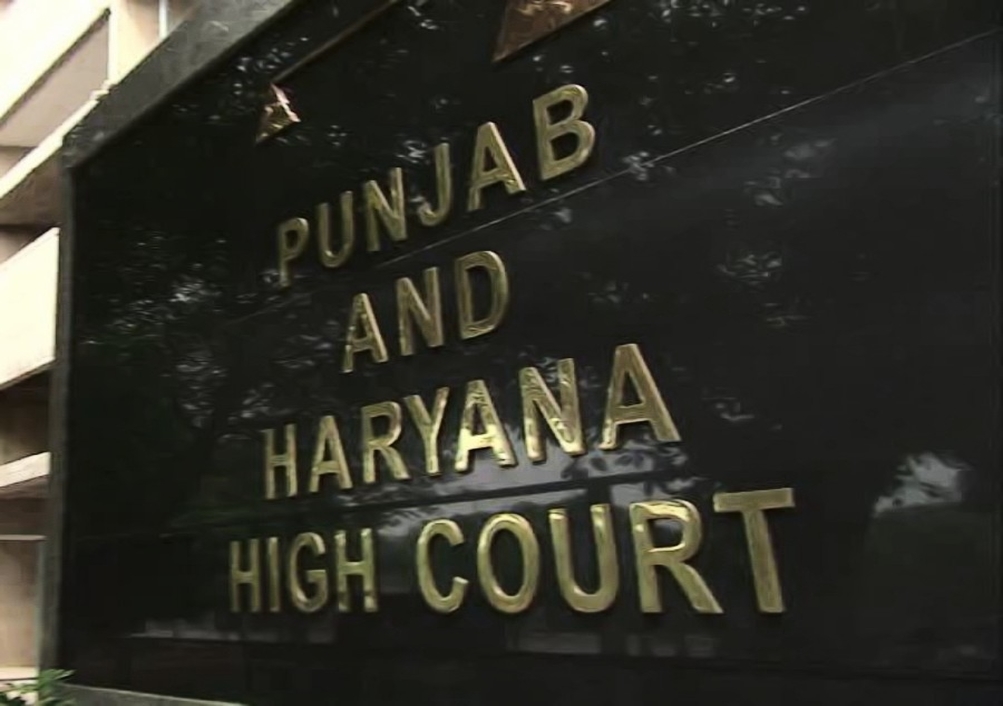In CR No.1327 of 2022-PUNJ HC- Under Order VII Rule 11 CPC, Court should determine if assertions in plaint are contrary to or barred by any law & whether case for rejecting plaint at threshold is made out: P&H HC Justice Alka Sarin [22-04-2022]

Monika Rahar
Chandigarh, April 22, 2022: While dealing with a civil revision against the Trial Court order dismissing Order VII Rule 11 CPC application of the defendant-petitioners challenging the recovery suit filed against them, the Punjab and Haryana High Court has held that the exercise of powers under Order VII Rule 11 CPC are drastic ones and a duty is cast on the Court to determine whether the plaint on a plain reading along with documents discloses a cause of action.
“No other document, be it a written statement or application for rejection of the plaint, can be looked into at this stage. On a meaningful reading of the plaintiff the same is not barred by any law, case for rejection of the plaintiff at the threshold would not be made out”, held Justice Alka Sarin.
The present civil revision petition under Article 227 of the Constitution of India was filed for setting aside the impugned order passed by the Trial Court whereby the application filed by the defendant-petitioners under Order VII Rule 11 of the Code of Civil Procedure, 1908 for rejection of the plaint being barred by limitation was dismissed.
Essentially, a suit for recovery was filed by the plaintiff against the petitioners (originally defendants). As per averments made in the plaint, it was stated that within a period of three years from the date of issuance of the demand draft for Rs. 2 lakhs to the defendant-petitioners, a notice was sent to the defendant-petitioners in 2016 by Registered Post.
On the other hand, it was the case of the petitioners that the suit filed by the plaintiff was barred by limitation as the amount/ sum which was the subject matter of the suit was admittedly deposited in 2013 while the suit was filed in 2018 after a gap of five years. Hence, the Counsel for the petitioners argued that the plaint was liable to be rejected under Order VII Rule 11 CPC. It was further the contention that the Trial Court wrongly relied upon Article 22 of the Limitation Act, 1963 to hold that the suit was filed within limitation.
Addressing the argument against maintainability of the suit due to lapse of the limitation period, the Court observed that while deciding an application under Order VII Rule 11 CPC only the contents of the plaint along with any document filed with the plaint are to be seen; neither the written statement nor the averments made in the application can be considered for rejecting the plaint under Order VII Rule 11 CPC.
Further, Justice Sarin added that in exercise of its powers under this provision, the Court should determine if the assertions as made in the plaint are contrary to statutory law or barred by any law and whether a case for rejecting the plaint at the very threshold is made out.
“What needs to be seen is whether the averments as made in the plaint, in conjunction with the documents relied upon in the plaint, would result in a decree being passed”, asserted the Court.
Additionally, it was also opined that on a meaningful reading of the plaint when it is found that the same is vexatious and does not disclose any right to sue, the Court would exercise the powers under Order VII Rule 11 CPC.
The Bench said, “Neither the written statement nor the averments made in the application can be considered for rejecting the plaint under Order VII Rule 11 CPC. In exercise of its powers under this provision, the Court should determine if the assertions as made in the plaint are contrary to statutory law or barred by any law and whether a case for rejecting the plaint at the very threshold is made out.”
On the factual aspects of the case, the Court opined on a plain reading of the plaint that it could not be inferred or deduced that the suit was barred by limitation. Rather, the Court added that on the face of it, the averments made in the plaint made out a case, within limitation, against the defendant-petitioners.
Again, on the power of Court under Order VII Rule 11 CPC, the Court opined that exercise of such power are drastic ones and a duty is cast on the Court to determine whether the plaint on a plain reading along with documents discloses a cause of action, and no other document, be it a written statement or application for rejection of the plaint, can be looked into at this stage.
On a meaningful reading of the plaintiff the same is not barred by any law, a case for rejection of the plaint at the threshold would not be made out, asserted the Court.
Thus, on a plain reading of the plaint, the Court concluded, “it cannot be held that the suit is barred by limitation”. Hence, the petition was dismissed.
Sign up for our weekly newsletter to stay up to date on our product, events featured blog, special offer and all of the exciting things that take place here at Legitquest.




Add a Comment